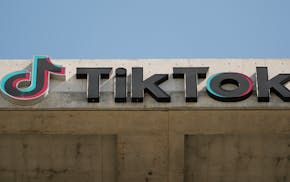DETROIT — General Motors announced this month that it will offer a new "direct-to-employer" lower-cost health insurance option next year for the nearly 24,000 salaried employees and their families who live in southeast Michigan.
The plan, called GM ConnectedCare, would cost employees $300 to $900 less in annual payroll contributions than the automaker's current cheapest plan and would require them to get all their health care, including surgeries, through Henry Ford Health System, or pay expensive out-of-network rates.
ConnectedCare will be offered to salaried GM employees who live in the seven counties where the health system has a concentration of clinics, hospitals and more than 3,000 doctors.
The plan's annual deductibles would match those of GM's least expensive plan right now, which are $1,500 for individuals and higher for families.
Detroit-based GM, which is self-insured, will offer ConnectedCare in 2019 in addition to its existing insurance plan options. The other plans are PPOs with broader choices of doctors, but higher premiums.
ConnectedCare will make GM the largest employer right now in Michigan to directly contract with a hospital system for health care.
Nationwide, corporations such as Boeing and Whole Foods have rolled out direct-to-employer insurance plans as a strategy for controlling health care expenses.
Ford Motor Co. tried a similar initiative in the late 1990s, called Partnership Health, which involved direct partnership with the University of Michigan's hospital system. That experiment began in 1998 but lasted only a few years because of low participation.
GM has seen its total health care costs grow about 3 percent to 4 percent a year in recent years, said Sheila Savageau, the automaker's U.S. health care leader.
"GM's upcoming ConnectedCare option comes from our ongoing quest to improve employee health, while also seeking to offset rising health care costs for both the employee and the company," she said.
Direct-to-employer health plans tend to appeal to cost-conscious consumers who don't mind going to a single network of doctors, said Marianne Udow-Phillips, executive director of the Center for Healthcare Research and Transformation.
"The concepts are not new nationally, and have been around for a long time," she said.
Such plans are less appealing to people who may have complex medical histories and want a wide variety of health care providers.
The hospital system will have cost targets for keeping GM's workforce healthy. If it achieves or exceeds the targets, there would be shared savings between GM and Henry Ford. But if costs run too high, the hospital system would credit GM for the unforeseen expenses the company paid from its insurance money pool.
"We are sharing the losses and the gains with General Motors," said Dr. Bruce Muma, chief medical officer and interim president and CEO of the Henry Ford Physician Network.
GM will use Blue Cross Blue Shield of Michigan to process the claims that come through ConnectedCare, as well as to manage the plan's pharmacy benefits. Blue Cross has been administering GM's self-insured health plans for decades.
Closing prices for crude oil, gold and other commodities
Thai plastics firm will pay $20 million to settle with U.S. over Iran sanctions violations
Biden administration moves to make conservation an equal to industry on US lands
Stock market today: Wall Street limps toward its longest weekly losing streak since September

